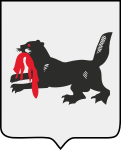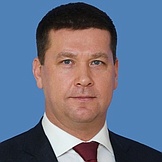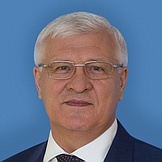Regional flags and emblems


PROFILE
Established 26 September 1937
Capital Irkutsk
The Irkutsk Region is part of the Siberian Federal District
Area 774,800 sq km
Population 2 331 500 (2024)
Ethnic groups
(2020 National Census, %)
Russian – 91,41
Buryat – 3,31
Ukrainian – 1,31
Other – 3,97
Administrative divisions (2024)
Municipal districts – 32
City districts – 10
Rural towns – 56
Rural districts – 354
Geography and climate
The Irkutsk Region is located in the southeast of the Central Siberian Plateau, which borders the mountain ranges of the Baikal area and the Eastern Sayan Mountains that reach a height of 2,875m in the south, and the North Baikal and Patomskoye highlands in the northeast. The territory is adjacent to Lake Baikal.
The region borders the Republics of Buryatia, Tyva, Sakha (Yakutia), and the Krasnoyarsk and Trans-Baikal territories. The region stretches 1,500 km from west to east and 1,400 km from south to north.
Major rivers include the Yenisei River basin (the Angara and the Nizhnyaya Tunguska rivers) and the Lena River basin (the Vitim and the Kirenga rivers). The world's deepest lake, Baikal, is also located in the Irkutsk Region.
The climate of the region is sharply continental. January temperatures average –20.1°C. July temperatures average 16.4°C.
The Irkutsk Region has two state nature reserves (Baikalo-Lensky and Vitimsky), two state federal nature sanctuaries (Tofalarsky and Krasny Yar), 13 other wildlife sanctuaries, and Pribaikalsky National Park.
Government
The legislative branch is represented by the Legislative Assembly of the Irkutsk Region, which is the permanent, representative and only body of legislative authority in the region.
The Legislative Assembly of the Irkutsk Region has 45 deputies elected for five years, with 22 of them running in single-mandate constituencies and the other 23 in the single electoral district in proportion to the number of votes cast for lists of candidates nominated by electoral associations.
The current Legislative Assembly of the Irkutsk Region was elected in September 2023. Its term expires in September 2028.
The executive branch is the Government of the Irkutsk Region, which is a supreme permanent body of legislative authority in the region that conducts its activities in the collegiate and single authority forms. The nomination of the First Deputy Governor of the Irkutsk Region and Prime Minister of the Irkutsk Region is coordinated with the Legislative Assembly of the Irkutsk Region.
The Governor of the Irkutsk Region is the region’s highest-ranking official who heads the executive branch in the region. The Governor forms the Government of the Irkutsk Region and coordinates the activities of executive agencies of the Irkutsk Region with other state agencies of the region. The Governor is elected for five years by Russian citizens who permanently reside in the region. The term of the incumbent Governor expires in September 2025.
Economy and natural resources
The Irkutsk Region is a major industrial territory that boasts one of Russia's best telecommunications and primary infrastructures. Industrial output accounts for over 40% of the regional GDP. Throughout the years of industrialisation, the region became a major centre for energy production and power consuming industries, and became a major supplier of aluminum, oil products, timber and pulp, organic synthesis products, and coal.
The region's energy network is part of the Siberian Unified Power Grid and includes 16 thermal power stations and four hydroelectric power stations (Irkutsk Hydroelectric Power Station, Bratsk Hydroelectric Power Station, Ust-Ilimsk Hydroelectric Power Station, and Mamakan Hydroelectric Power Station).
Major industries include timber, wood-processing, pulp and paper, and mining industries, as well as engineering.
The extraction of fuel and energy resources in the region is represented by coal mining and brown coal, oil and gas production. The coal mining industry includes open-pit coal mines of Vostsibugol, which is subsidiary of EvroSibEnergo. Oil, gas and associated gas are produced by two companies: Verkhnechonskneftegaz and Irkutsk Oil Company.
The Irkutsk Region mining industry includes major gold mining companies: Polyus and its subsidiaries, as well as Vysochaishy. The development of the Sukhoi Log gold field is a strategic project of the gold mining sector. The Korshunovsky mining and processing plant is the largest iron-ore extraction and processing facility in the Irkutsk Region.
Major pulp-and-paper companies include subsidiaries of Ilim Group in Bratsk and Ust-Ilimsk.
The Irkutsk Aviation Plant, a subsidiary of Irkut Corporation, is a leading manufacturer of transport vehicles and equipment. The plant is currently implementing a large-scale project to mass produce the new MC-21 mid-range passenger airliner. Currently, the spatial development of the Irkutsk Region is based on major industrial production centres in Irkutsk (engineering, chemical production, metallurgy), Bratsk (wood processing, metallurgy), Shelekhov (metallurgy), Angarsk (petrochemistry, polymers production), Cheremkhovo (coal extraction and dressing), Sayansk (chemical production), Ust-Ilimsk (pulp production), Zheleznogorsk-Ilimsky (iron-ore extraction and dressing), Ust-Kut (oil and gas production, wood processing), and Bodaybo (gold mining). These territories form the spatial framework that the region's social and economic development is based on. In the future, they will serve as a basis for developing high-production sectors oriented toward enhancing the level of raw material processing and introducing new technology. The Irkutsk Region's agricultural sector is located in an area of risky farming. Agriculture is dominated by grain and vegetable production, livestock breeding, deer breeding, fur farming, fur animals hunting, and fishing. The livestock breeding accounts for almost a half of local agricultural products. The region produces only half of the agricultural produce it needs; food products are imported from other regions. The region has over 200 agricultural companies as well as about 3,000 small farms and nearly 200,000 private farming households.
Culture and tourism
The history of the Irkutsk Region is largely linked to its geographical location, its proximity to the unique Lake Baikal, and cultural traditions rooted in the past.
Irkutsk is a historical city that has preserved its unique atmosphere and history. The city’s culture is deeply rooted in the traditions of classic art and folk arts and crafts. The works of renowned writer Valentin Rasputin are known both in Russia and abroad, while playwright Alexander Vampilov is renowned throughout the world as a successor to the traditions of Chekhov's drama.
The Irkutsk Region hosts a vast number of music festivals: Stars on Baikal International Music Festival, Alexander Vampilov International Theater Festival of Modern Drama, Baikal Strings All-Russian Folk Music Festival, Crimson Sails regional festival of amateur youth theaters, Universe of Music organ and chamber music festival, Easter Joy regional festival, and the Yordyn Games international ethnic and cultural festival. The region also holds the Days of Russian Spirituality and Culture ”Russia's Light,“ which is timed to coincide with Region Day and is the main event aimed at strengthening the cultural traditions of the Angara region.
Along with festivals, the region has a vibrant theatre life. Regional theatres include the Okhlopkov Irkutsk Academic Drama Theatre, Zagursky Regional Music Theatre, Vampilov Regional Youth Theatre, the Aistyonok regional puppet theatre, and the Gurkin Cheremkhov Drama Theatre.
Concert activities in the Irkutsk Region are represented by three organisations: the Irkutsk Regional Philharmonic, the Stepnyye Napevy (Steppe Melodies) State Song and Dance Ensemble, and the brass orchestra of the city of Bratsk.
Today, the region boasts about 50 state and municipal museums. Each year, they welcome over 1 million visitors. The most well-known are the Sukachyov Regional Art Museum, Irkutsk Museum of Local History, and Irkutsk Regional Historic and the Memorial Museum of the Decembrists.
The region has over 800 cultural and leisure institutions, the most popular of them are the Arts and Crafts Centre, the Alexander Vampilov Cultural Centre, the Irkutsk Regional Film Foundation, the Cultural Centre of Indigenous Peoples of the Baikal Area, and many others.
The Irkutsk Region boasts a unique range of recreational resources: tourist, spa and health resort. Some of its areas, including Lake Baikal's coast, have favourable microclimates. Baikal's central ecological zone alone has about 35,000 sq km that can be used for the development of tourism. Due to its unique qualities, with almost two thirds of its 2,635 known plant and animal species being endemic (that is, those that cannot be found anywhere else in the world), Lake Baikal is included in the list of UNESCO World Heritage Sites.
Lake Baikal's famous endemic species, the omul, is used for wide range of exquisite delicacies. The furs of the Barguzin sable and the Baikal seal, used for making clothes, have received international quality certificates at fur auctions. Fresh water from the depths of Lake Baikal is used for producing high quality alcoholic and non-alcoholic drinks and beverages.
The territory has the world's largest mineral water artesian basin, Angara-Lena Artesian Basin (2,700 sq km), as well as some 300 mineral springs and six large therapeutic mud lakes. Production of bottled mineral water is organised at eight springs. There are over 70 health resorts, recreational and other health improvement institutions.

